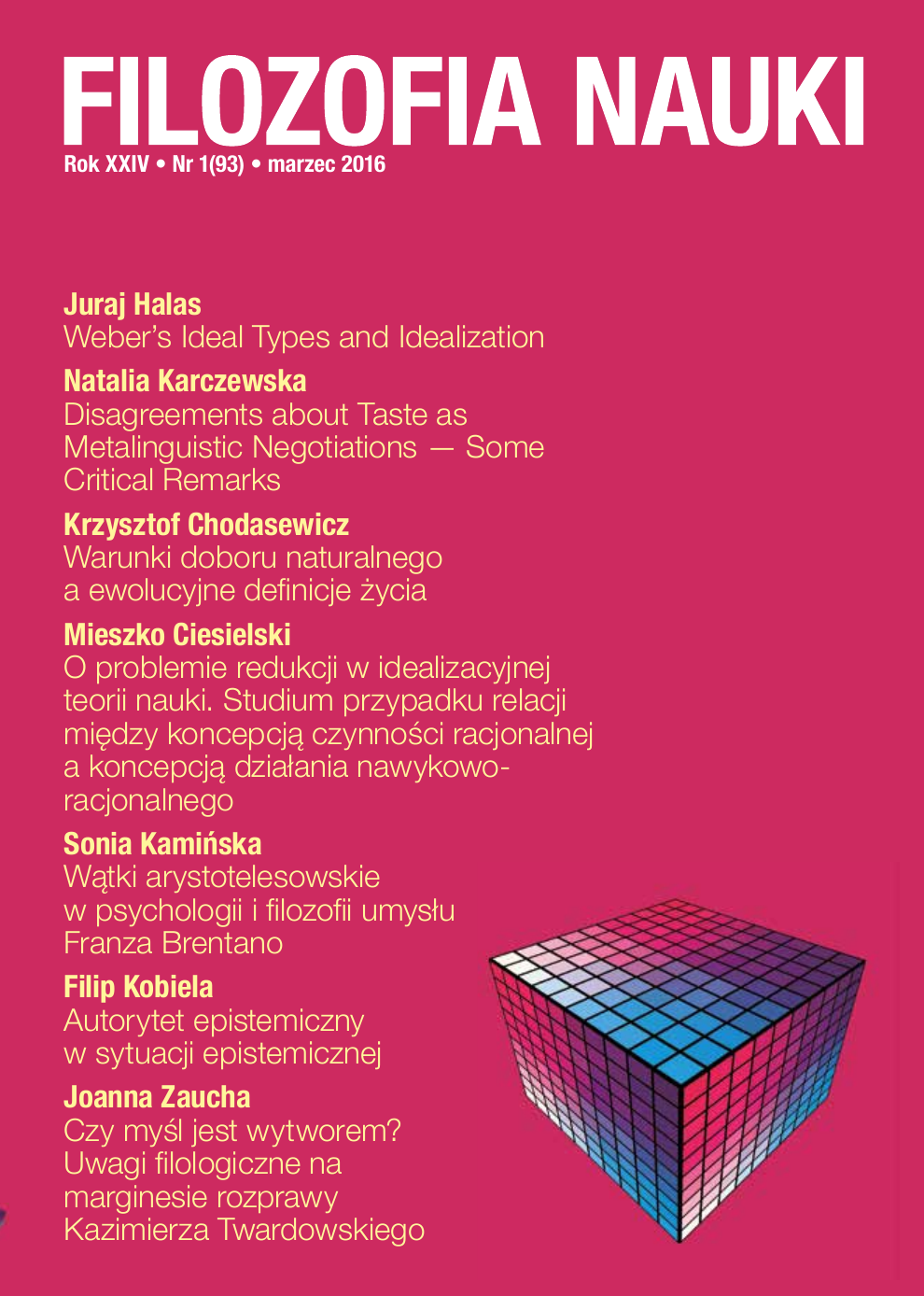Is a Thought a Product? Some Philological Remarks as a Side Note to Kazimierz Twardowski's Treatise
Keywords:
Twardowski, thought, proposition, product, inner speechAbstract
The paper presents linguistic comments on semantic and syntactic features of some key expressions mentioned by Kazimierz Twardowski in his O czynnościach i wytworach (On Actions and Products, 1911). In the first part, I enumerate and explain main functional properties of the Polish word myśl, że (a thought that). By means of collocation experiments I show that the expression myśl, że refers to the entity which is countable as well as independent from the subject. A thought is identified by the accompanying proposition, which must not be a nonsense. Next, I point out the differences between other Polish names of inner speech phenomena like spostrzeżenie (a notice, an observation), przekonanie (a belief), sšd (a judgement, a proposition), wyobrażenie, pojęcie (a notion). Finally, I argue that within natural (Polish) language there is no reason to treat thoughts as products of mental actions.Downloads
Published
2016-03-01
How to Cite
Zaucha, J. (2016). Is a Thought a Product? Some Philological Remarks as a Side Note to Kazimierz Twardowski’s Treatise. The Philosophy of Science, 24(1), 141–150. Retrieved from https://www.fn.uw.edu.pl/index.php/fn/article/view/813
Issue
Section
Articles















 Filozofia Nauki/The Philosophy of Science | ISSN 1230-6894 | e-ISSN 2657-5868
Filozofia Nauki/The Philosophy of Science | ISSN 1230-6894 | e-ISSN 2657-5868